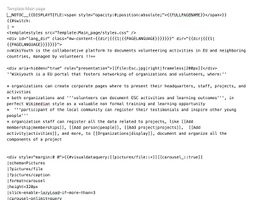Europe Day: reflecting on the idea and values of the European Union
| Title | Europe Day: reflecting on the idea and values of the European Union |
|---|---|
| Author | Paola Santaniello, Eleonora Cozzolino |
| Date | 2024-05-20 |
| Project | 2023-1-IT03-ESC51-VTJ-000139142 |
May 9th each year marks the anniversary of the Schuman Declaration of 1950, a document that heralded the beginning of a new form of political cooperation in Europe aimed at preventing another war between nations in the aftermath of the Second World War. Europe Day, therefore, is an occasion to celebrate peace and unity among the European people.
The declaration is named after the then French Foreign Minister, Robert Schuman. However, the ideology that inspired it can be traced back to the functionalism of the French economist Jean Monnet, who proposed to curb the centuries-old conflict between France and Germany by creating a superior authority that could control steel and coal production. Based on these premises, with the signing of the Treaty of Paris on April 18, 1951, the ECSC (European Coal and Steel Community) was established, whose founding states were France, West Germany, Italy, the Netherlands, Belgium, and Luxembourg. From 1951, the path can be said to have begun, which led to the signing of the Treaty of Rome in 1957, establishing the EEC (European Economic Community) first, and then the EU with the Maastricht Treaty of 1992.
On the occasion of Europe Day, we questioned ourselves about a good way to celebrate this anniversary. Taking a step back, we asked ourselves what the perception of the EU itself was among its citizens and non-citizens. To this end, we created a short survey to administer to friends, colleagues, and acquaintances around us, of various nationalities, to initiate a reflection on the concept of Europe and its values. In particular, we asked the interviewees to describe what it meant for them to be a European citizen and how this is (or is not) reflected in their lives. Although brief, this survey allowed us to explore various points of view, presented by individuals from different countries and thus with different historical pasts and presents.
The survey was administered to 31 people aged between 20 and 42. Among these, the majority are of Italian nationality (64.4%). Other nationalities are present, including Georgian (12.9%), French, German, Dutch, Moldovan, Lithuanian, Italian-Israeli, and Italian-French.
The interviewees were asked three questions, the last of which was addressed differently to EU and non-EU citizens: "Were you aware of Europe Day?"; "When you think of Europe, what are the first three words that come to mind?"; "For EU citizens: what does Europe represent to you? How is being part of the EU reflected in your daily life? For non-EU citizens: if you believe in the values of the EU, what would becoming a part of it mean to you?".

To the first question, 59.4% answered that they were unaware of this anniversary.
To the second question, the words that were mentioned most frequently are the following: freedom, union, democracy, rights. Other words cited by the interviewees can also be seen in the illustration below.
To the third question, everyone responded by giving space to their personal opinions. Since this was an open question, we decided to summarize as follows.
"Belonging to the EU is reflected in the possibility of looking beyond our Nation-State": this is one of the answers extracted from the survey and which could, based on the data collected, best summarize the common thought of European citizens who recognize themselves in its values and, first and foremost, in that of freedom: freedom of thought, movement, and choice. For some, especially the younger generation, Europe means opportunities for personal and professional growth, as demonstrated by the Erasmus+ or ESC (European Solidarity Corps) programs, as well as many other initiatives aimed at all those who want to broaden their horizons by challenging themselves.
Europe, for others, means cooperation and collaboration for the continuous development of a united community where every citizen enjoys countless rights, expressly recognized in the Treaty on the Functioning of the European Union (TFEU), the Charter of Fundamental Rights of the European Union, and the Treaty on European Union (TEU).
However, some express concerns about the real solidarity and cooperation among EU members, highlighting challenges yet to be addressed to consolidate a genuine union. In particular, several interviewees state that the sense of collaboration and community is still very weak, especially with reference to assistance for minorities in difficulty. The interviewees are of the opinion that much work still needs to be done to truly speak of "union." Furthermore, among the negative aspects resulting from the survey, the consequent loss of power that each country experiences from the moment it joins the EU is mentioned.
For those living in a non-EU State, the common sentiment appears to be a sharing of European values and a hope of becoming part of it, especially among the latest generations. Through personal experiences, some interviewees have had the opportunity to study and/or live in one of the member states and testify that such experiences allowed them to closely understand the European potential. For many, becoming European citizens means participating in the democratic process, promoting the values of diversity, freedom, and respect for the creation of a better world.
A dual point of view is expressed, however, by those who have lived in an EU country as a non-EU citizen, acquiring citizenship, with considerable difficulties, mainly related to the long waiting times. What does it mean to live in a European country without possessing citizenship? "On many occasions, this has meant an enormous waste of time. And obviously fewer Erasmus opportunities. No right to vote," is one of the opinions expressed in the survey.
In light of the analysis conducted, it can be affirmed that the EU represents, both for those who are part of it and for those who aspire to it, an ideal of the values of democracy, diversity, and respect, despite the constant challenges that must be addressed. Europe Day offers the opportunity to reflect on the different points of view presented here and to renew the commitment towards a more inclusive, supportive, and respectful Europe of individual rights. At the same time, celebrating May 9th can be understood as an invitation not to take the rights we hold for granted, and thus not to forget that someone else, entirely equal to us, is struggling to obtain them.
Sitography
- https://europeday.europa.eu/index_it
- https://european-union.europa.eu/principles-countries-history/history-eu/1945-59/schuman-declaration-may-1950_it
- https://www.treccani.it/magazine/atlante/cultura/Il_significato_storico_della_dichiarazione_Schuman.html









